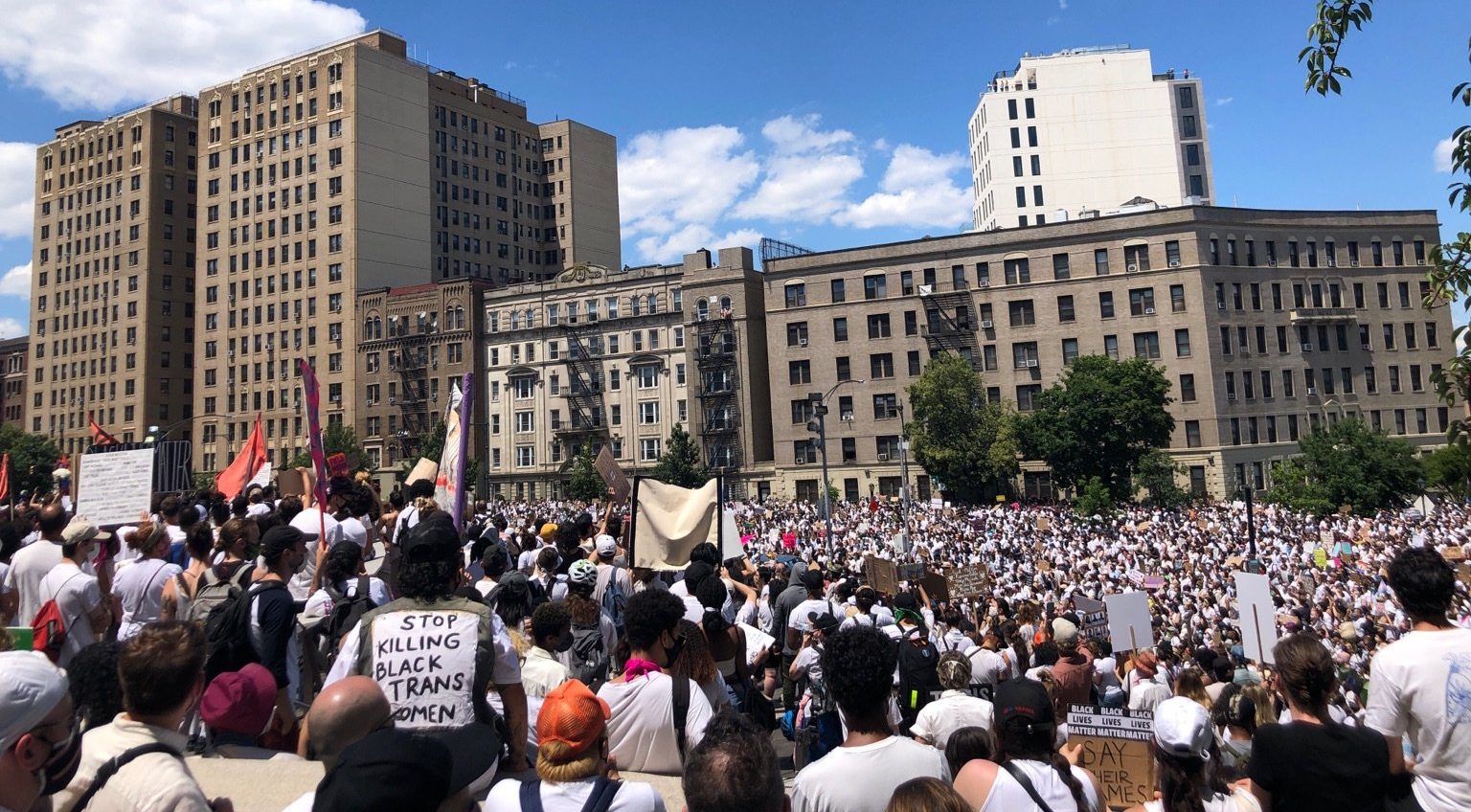Transgender and criminal justice reform activists won a major victory as New York Governor Andrew Cuomo signed legislation passed that same day by state lawmakers, effectively ending a policy described by some as a stop-and-frisk policy targeting trans and cisgender women of color.
On February 2, state senators and assembly members voted on bills (S.2253/A.654) repealing the statute known to many as the “Walking While Trans” ban, criminalizing “loitering for the purpose of engaging in a prostitution offense.” Soon thereafter, Governor Cuomo enacted the legislation he’s publicly supported since February 2020.
On the ground, the reform means police cannot lawfully target people based off of common behaviors, like “wander[ing] about,” “repeatedly attempt[ing] to engage passers-by in conversation,” or “repeatedly stop[ping]” cars for what’s believed to be for the “purpose of prostitution.” Of course, the determination of whether a person is occupying a public space for sex work or not is subjective, and likely informed by stereotypes of who “looks like” a sex worker.
“Today, we’re striking from the books a law that for decades has allowed law enforcement broad discretion to arrest transgender woman, immigrants and LGBTQ youth simply for what they look like, the clothes they’re wearing, or where they are standing,” said State Senator Brad Hoylman, the bill sponsor, in a statement. “This outdated and discriminatory law has led to thousands of unnecessary arrests and a broader culture of fear and intimidation for transgender and gender nonconforming New Yorkers, particularly for those of color.”
The new bill also bans the admission of condoms as evidence in prostitution cases, a practice that has been denounced by the World Health Organization as running counter to public health efforts to end the HIV/AIDS epidemic. Additionally, the bill tweaks criminal procedures related to these charges.
“This is great news. We are always fighting for all people to be treated with dignity and respect, including our trans sisters who have fought to get this bill passed so they aren’t profiled and harassed by the police,” said VOCAL-NY Civil Rights Union Leader Jovada Senhouse in a statement.
The scope of the Walking While Trans ban’s effects is believed by the advocates and known by the trans community to be pervasive. In terms of broader police abuses, Amnesty International has documented anecdotal accounts, while the 2011 National Trans Discrimination Survey found that one in four surveyed trans respondents had been harassed by police. The 2015 US Transgender Survey found that 60 percent of respondents who had a police encounter in the past year reported “some form of mistreatment.”
Historically, the Walking While Trans ban, dating back to 1976, has been used in New York City to displace queer and trans people from gentrifying neighborhoods, like the West Village, as political scientist Karen Struening has found.
But numbers detailing the specific impact of New York’s “Walking While Trans” law are scarce for a simple, problematic reason: Law enforcement typically never record whether a person is trans or cis, instead opting for the binary of “male” and “female.” Added to that, the New York Police Department failed to track complaints by LGBTQ people about officer misconduct, according to a 2017 report by the city’s Department of Investigation.
“Advocates for trans profiling victims are almost completely unable to track individual instances of police misconduct against transgender people through law enforcement systems unless they happen to already know the name and transgender identity of the individual who was profiled,” wrote two law professors in a 2017 study on Walking While Trans profiling.
Various versions of the repeal bill have been introduced in both chambers since 2017. What’s unique about the latest one, introduced in January 2021, it its stipulation to seal past prostitution and loitering-for-prostitution convictions. For trans activists, sealing records will support economic justice for trans women.
“This gives us a way for being able to file for employment and feel as though we could file for housing and not get worried about getting evicted because of our background,” said activist TS Candii, a leader in the Walking While Trans repeal movement. She was herself a target of the law, having been stopped by police in the Bronx while simply smoking a cigarette outside in 2017.
More than six months after the abolitionist uprisings of 2020 in New York and across the country, the Walking While Trans repeal is far from being the limit of activists’ ambitions. “[T]o be clear, we are just getting started in passing social justice reforms in 2021,” said Senhouse. “The legislature must follow this up by ending Solitary Confinement, passing the Elder Parole and Fair & Timely Parole bills, reforming 440.10 and restoring the right to vote for all incarcerated and formerly incarcerated people. Let’s go!”
Photograph of the historic Black trans lives matter rally outside the Brooklyn Museum on June 14, 2020, by Sessi Kuwabara Blanchard/Filter





Show Comments